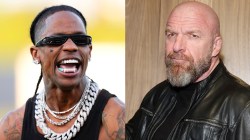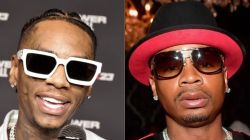In March, Universal Music Group announced it would soon make a “strategic investment” of an undisclosed amount into INgrooves. For those outside of the music industry, the announcement probably seemed like one of many obscure business deals that happen daily. Now that the deal is finished, analysts aren’t sure exactly what to make of the world’s largest music company investing what could be millions into the San Francisco-based digital music distribution company.
INgrooves was founded in 2002 and independent artists such as Madlib, Dolly Parton, Tila Tequila and The Cool Kids have taken advantage of their low-cost distribution and royalty administration fees to cut overhead. As the parent company to labels such as Interscope, Geffen, A&M, Island Def Jam and Motown, UMG will now have access to INgrooves‘ digital distribution platform for its own artists. The deal will essentially allow UMG to outsource INgrooves for online distribution, ringtones and marketing, providing much needed relief for UMG artists with high sales of ringtones and digital downloads, but poor sales of physical albums.
It is unknown how the partnership will impact artists who use INgrooves but don’t fall under the UMG umbrella. At best, artists would see no change. At worst, artists such as Killer Mike and Prodigy (who is digitally distributed through INgrooves for his solo deal with Voxonic, while still under the UMG subsidiary G-Unit as a member of Mobb Deep) would find digital distribution elsewhere, potentially making their product harder to find. While representatives from both INgrooves and UMG spoke glowingly of their new partnership, neither party would comment on the status of artists not under the UMG umbrella. Music industry analyst Marina Romanisio says the impact on non UMG artists depends on several factors.
“The principle is similar to that of online ad networks, where advertisers can choose where to place ads by selecting slots from a list of participating publishers,” says Romanisio. “INgrooves has no rights over the music, but it takes a share of revenue each time someone buys a song. This can be around 15% for basic distribution and up to 30% for full service, where the buyer agrees to promote, license and distribute the music.”




